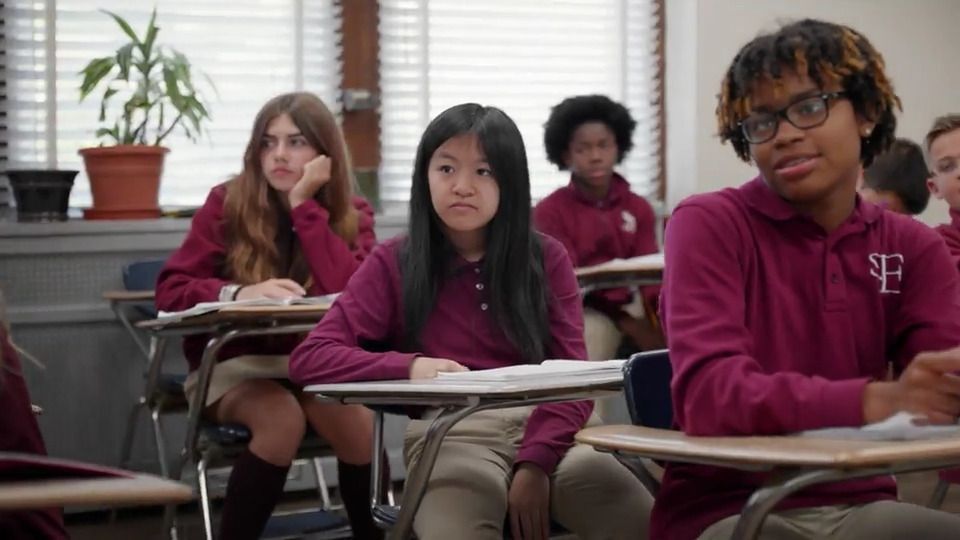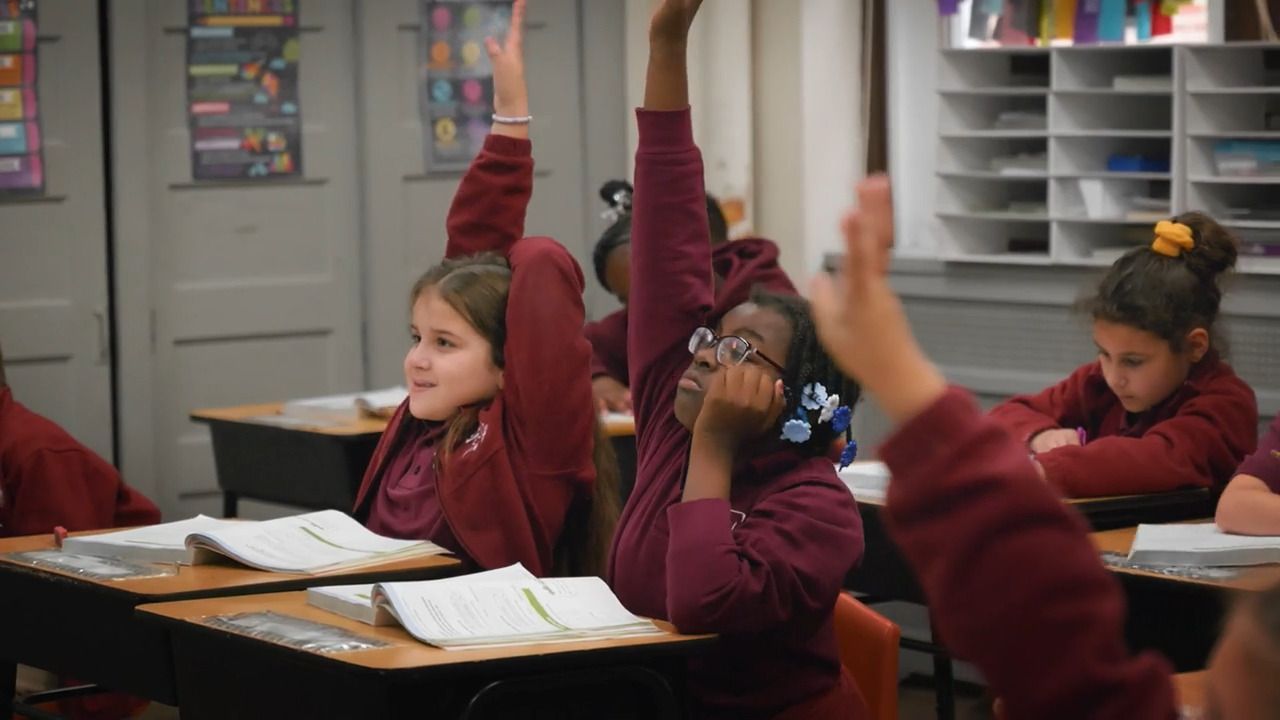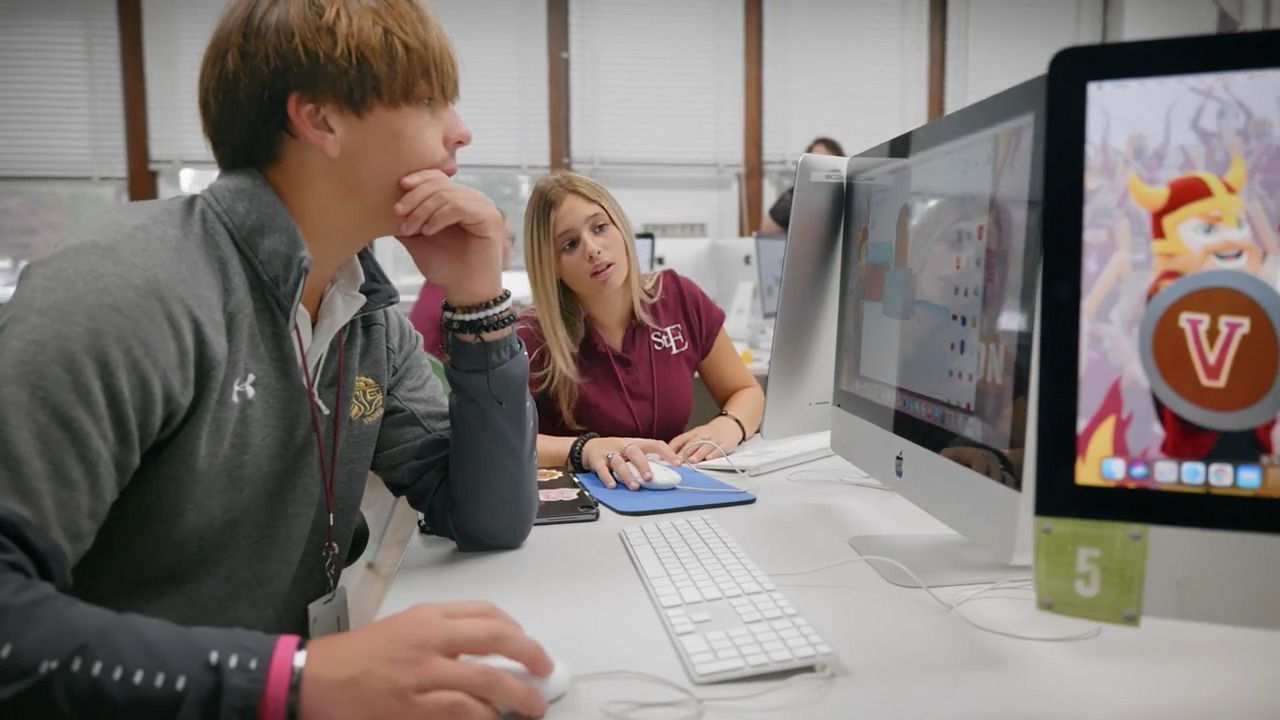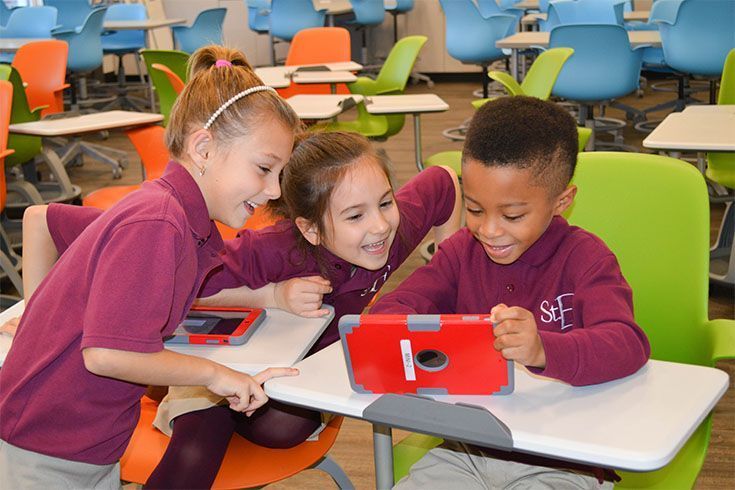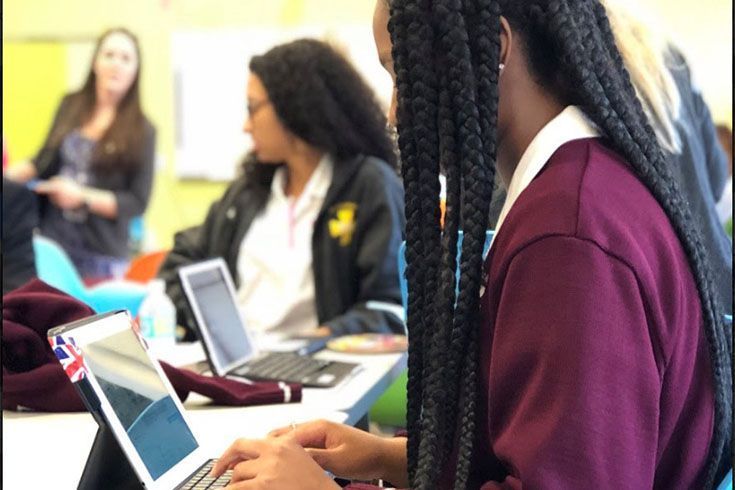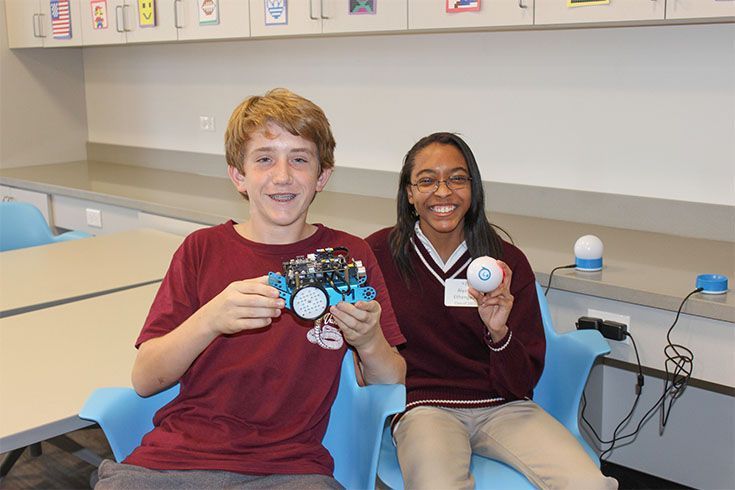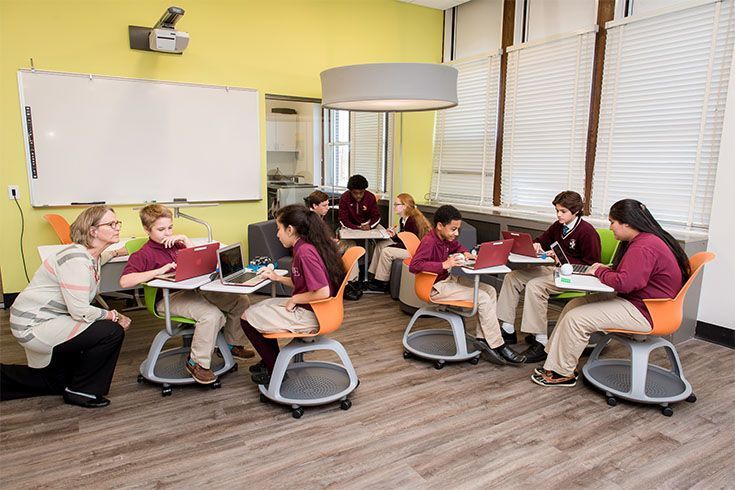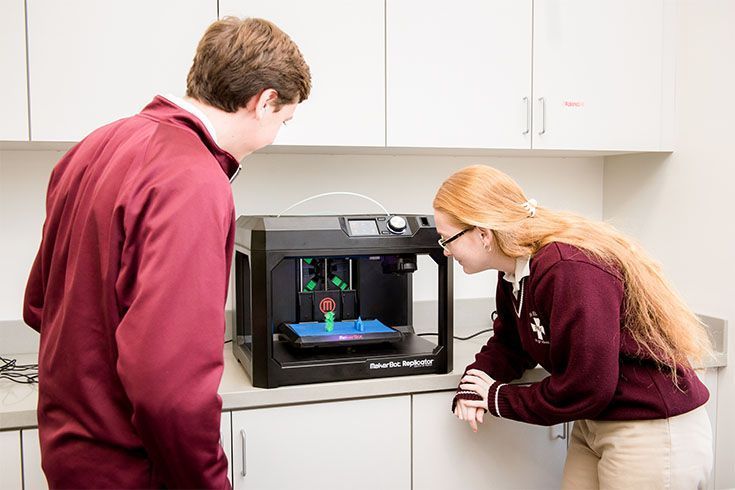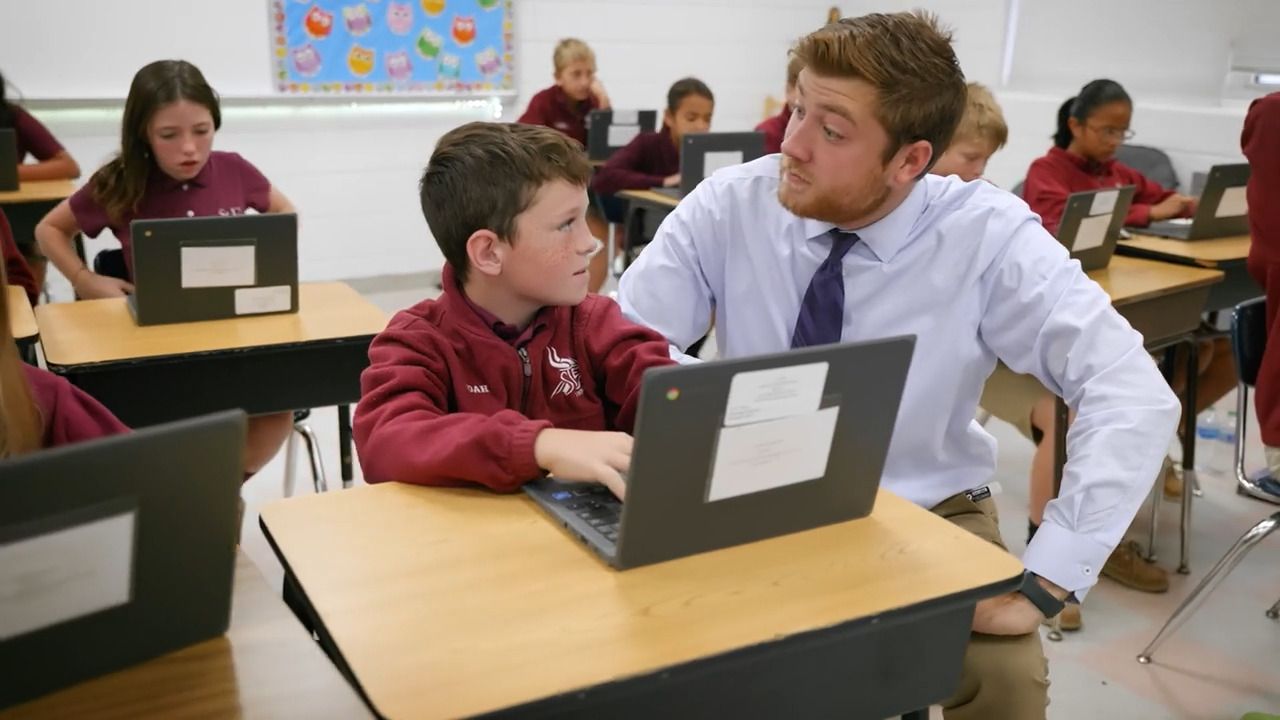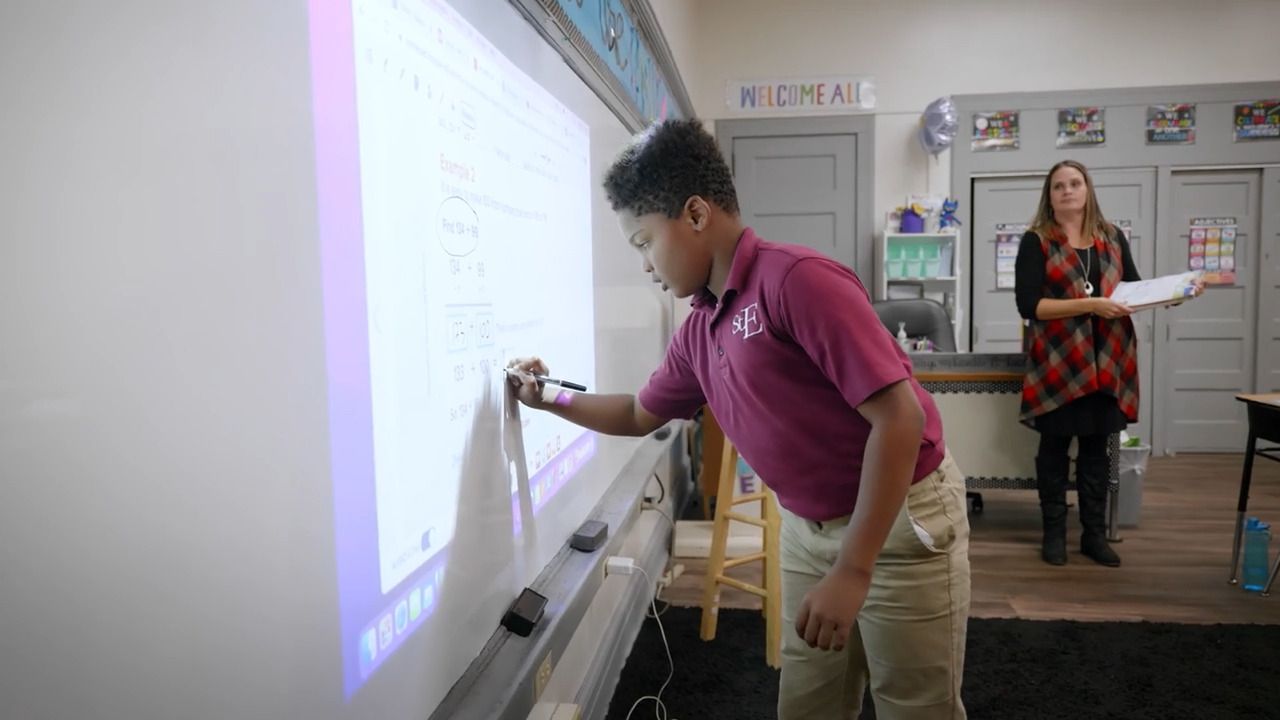This is paragraph text. Click it or hit the Manage Text button to change the font, color, size, format, and more. To set up site-wide paragraph and title styles, go to Site Theme.
Foster Academic Excellence.
Learning at St. Elizabeth School
Fostering Life-Long Learners PK2-12th Grade
Fostering lifelong learning for children and teens in a Catholic tradition means shaping not only their minds, but also their hearts and souls — forming them to see all learning as part of their journey toward God. In Catholic education, knowledge is never just for personal gain; it is a gift to be cultivated and used for service, justice, and the building up of the Kingdom.
The St. Elizabeth School faculty and staff intentionally:
- Teach students that all truth is God’s truth — whether found in Scripture, science, history, or the arts.
- Integrate faith across the curriculum so they see connections between their studies and their relationship with Christ.
- Show that questions are welcome, and wonder is holy.
- Share stories of saints and Catholic scholars (e.g., St. Thomas Aquinas, St. Hildegard of Bingen) who pursued knowledge their whole lives.
- Help students discover how their talents can serve others, following the Church’s teaching on the dignity of work and the call to serve.
- Incorporate moments of prayer, silence, and discernment so students learn to pause, think deeply, and seek God’s wisdom.
- Connect study to gratitude — recognizing that learning is a gift to be stewarded.
- Encourage projects and experiences that link classroom learning to real-world needs, such as parish ministries or community outreach.
- Expose students to the richness of Catholic thought, from philosophy and theology to literature and art.
- Teach them to read critically, think ethically, and appreciate beauty as a pathway to God.
In essence, lifelong learning in the Catholic tradition is about helping students see that learning is a vocation in itself — a way of knowing God more deeply, serving others more faithfully, and discovering the fullness of life He intends.
Explore
Early Childhood (PK)
A warm, nurturing, and faith-filled environment for children ages 2 to 5.
Saint Elizabeth Little Vikings Preschool, now located in the Saint E Center, provides a warm, nurturing, and faith-filled environment for children ages 2 to 5. Rooted in the values of St. Benedict, we partner with families to foster each child’s social, emotional, physical and cognitive growth. Our classrooms are filled with opportunities to learn through play and discovery, creating a strong foundation for lifelong learning.
Two-Year-Old Program
For our youngest learners, two-year-olds, we focus on developing independence, language and social skills in a safe and loving setting. Developmentally appropriate activities are provided for children in an environment that allows opportunities for social interaction and growth. Learning through play exploration, facilitating growth in a child’s independence and developing and guiding positive peer interaction is a key
component of our program.
Three-Year-Old Program
The goal of the three-year-old program is to provide a developmentally appropriate curriculum organized into theme-based units. These units address topics that encourage children to develop their skills and confidence using hands on activities. Language development, math, science, creative arts, music, motor skills and social development are incorporated into these units. Our activities allow children to explore and play individually, in small groups, and in large groups, and are designed to involve the active participation of the children in the learning process.
Four-Year-Old Program
Our four-year-old program is designed to provide a rich, nurturing environment that prepares children for Kindergarten. Independence is promoted in an organized atmosphere. Developmentally appropriate activities are provided to develop skills in emergent literacy, math readiness, and gross and fine motor development. Children are challenged to be their own thinkers, by exploring, writing, creating, talking, listening, and interacting with materials and concepts.
Positive social interactions are a focus of the four-year-old classroom as play becomes more cooperative. Problem solving skills, compromise, cooperation, and developing positive relationships with peers and teachers are encouraged through modeling.
Catholic values are woven into daily activities helping children recognize God’s presence in their everyday experiences. We believe that faith and education go hand-in-hand, and we strive to create an atmosphere where children not only prepare for kindergarten success but also develop a sense of belonging to the larger faith community.
Elementary Grades (K-8)
A Nurturing & Energized Learning Environment
Catholic education doesn’t just aim for high test scores; it seeks to form the whole person — mind, body, and spirit. In a warm, supportive setting, children feel safe to explore, ask questions, and grow in confidence, knowing they are valued as unique creations of God. By keeping students in a continuous K–8 program, Catholic schools provide a consistent moral framework alongside academic rigor. Teachers can build on each child’s prior learning year after year, reinforcing both faith and knowledge in age-appropriate ways. Younger students look up to older students as role models, while older students develop leadership skills by mentoring their younger peers. This inter-age interaction fosters a family-like environment that strengthens a sense of belonging. Prayer, liturgy, and Gospel values are not occasional extras — they are integrated into the rhythm of the school day. Students learn to connect their faith with everyday choices, building habits that will guide them into high school and beyond.
From the first days of Kindergarten to the launch into the secondary grades, a stable Catholic school environment provides consistent expectations, loving guidance, and a shared mission. This continuity helps our students grow with confidence and purpose.
The Development of the Whole Child
St. Elizabeth School cultivates
academic leadership, active learning and a commitment to service, which stimulates students’ personal growth. Our staff is dedicated to educating our students through a variety of innovative, instructional methods and lessons that
integrate technology. We strive to challenge students to reach their full academic potential by recognizing individual learning styles and encouraging students to become
self-motivated, independent learners. Our Catholic values, traditions and academic excellence contribute to the development of the whole child -
mind, body and spirit.
Students engage with interactive apps, e-texts, and ibooks while learning responsible technology use.
Secondary Grades (9-12)
A Faith-based, Value-centered Educational Community
Amid a noisy and often divisive public sphere, Catholic education provides students with a moral compass grounded in Scripture, the Catechism, and the example of the saints. They learn to evaluate ideas and issues through the lens of faith, dignity of the human person, and the common good.
St. Elizabeth Secondary students are challenged to think deeply, question respectfully, and discern carefully — skills essential for navigating complex cultural and global issues. By integrating faith and reason, they learn to distinguish between opinion and fact, and between passing trends and enduring values. A faith-based environment models civil discourse, where students practice listening to diverse perspectives without compromising their convictions. This prepares them to be bridge-builders in a polarized world.
Through Catholic social teaching, students connect what they learn in the classroom to global challenges such as poverty, migration, and care for creation. They see themselves as part of a universal Church with a mission to serve beyond borders. An energized and supportive school culture fosters confidence, adaptability, and joy. Students are encouraged to see themselves not as passive observers, but as active contributors to a more just and compassionate society. By grounding academic excellence in a living relationship with Christ, Catholic high schools prepare students to live their faith in every arena — college, career, family life, and civic engagement.
In short, a Catholic secondary level education that is both nurturing and energized gives students the knowledge, virtues, and spiritual grounding
to face the world’s challenges with courage, clarity, and hope.
Viking Pathways
College Preparation & Career Ready
Catholic social teaching affirms that work is more than a means to earn a living — it is participation in God’s creation. Integrating internships, apprenticeships, or job-shadowing with rigorous academics teaches students that both intellectual and practical skills have equal dignity and worth. College prep coursework ensures students are ready for university if they choose that path. At the same time, work-based learning builds employable skills, certifications, and professional networks that can help families manage the cost of postsecondary education or allow students to enter the workforce immediately if needed. When students can connect what they’re learning in the classroom to real-world situations — whether in healthcare, skilled trades, business, or technology — they see the value of their studies. This increases motivation, especially for those who learn best by doing.
For many students, early exposure to professional settings can open doors to careers and industries they may not have otherwise considered. This can expand opportunities for long-term stability and upward mobility. Partnerships with local businesses, nonprofits, and parish networks provide mentoring and role models, creating a strong sense of “it takes a village” support. Students also learn the importance of giving back through service-oriented work experiences.
This blended approach says to our students: “We believe in your God-given potential to lead, serve, and succeed — whether your vocation takes you to a university, into a trade, or into the workforce right after graduation. We’ll give you the tools for both.”
Viking Pathways helps shape our students for the future; for college and beyond.
School Counseling Services
Promote academic growth, social/emotional well-being, and readiness for college and career
Our school counselors serve as partners in the mission of Catholic education, supporting the formation of the whole person — mind, body, and spirit. Each provides comprehensive services that foster academic growth, social and emotional well-being, and readiness for each student’s God-given vocation, whether that leads to college, career, or service. Rooted in the dignity of the human person, our counselors offer guidance, education, and resources to support mental health, and are prepared to connect students with appropriate care when needed.
Guided by Christ’s example of compassion and presence, the counseling department maintains an open-door policy, inviting students to seek guidance freely. Because trust and consistency are essential for genuine accompaniment, each student is paired with the same counselor from first grade through graduation, ensuring a supportive relationship that grows throughout their academic journey.
More Services
- Whole-school assemblies for students, staff, and parents
- Academic planning and course scheduling
- Short-term counseling, information, and resources to support mental health
- Consultation with teachers, parents, staff, and outside agencies
- Administering PSAT and AP exams
- Facilitating college and career research, exploration, and development
- Managing the college application process
- Crisis response
- Interpreting Education/Psychological evaluations and developing learning profiles for students with identified needs.
Center for Student Success
The Center for Student Success strives to educate all students in a caring and supportive environment that is respectful of and conducive to individual learning differences in order to prepare them for a life of continuing education, service to others, and growth in spirituality that reflects St. Elizabeth's commitment to the Catholic faith, tradition, and Benedictine charism. This program outlines best practices that address individual learning styles through differentiated teaching strategies, such as:
- Equitable opportunities for academic success
- Flexibility within the classroom environment
- Assisting faculty with varied teaching approaches
- Simple and intuitive lessons that are reliable and academically challenging
- Tolerance for error that allows students to learn at their own pace
- Accommodated effort to increase
More Details
Equitable opportunities for academic success
Flexibility within the classroom environment
Varied teaching approaches
Simple and intuitive lessons that are reliable and academically challenging
Tolerance for error that allows students to learn at their own pace
Accommodated effort to increase attention and decrease cognitive fatigue
Technology
Adaptive & Personalized Educational Learning Programs
St. Elizabeth School embraces technology in education, ensuring our teachers use the latest tools to enhance learning across all grade levels. Students access various software and web programs that energize classrooms and inspire creativity. This approach enriches learning experiences and opportunities for everyone.
